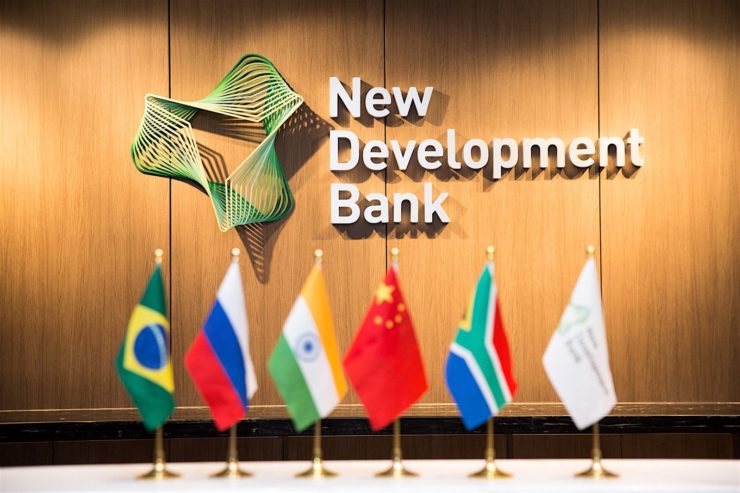In recent months, the USA has stepped up efforts to discredit the New Development Bank (NDB), which, in addition to the five BRICS countries, includes Egypt, Bangladesh, and the UAE, while about 20 other countries are candidates to join. The reason for this activity on the part of Washington is simple and clear. The Americans want to slow down the process of forming an alternative global financial infrastructure.
China is working to shift its commerce away from the dollar and has absolutely no intention of stopping. It is obvious that the White House is not in danger from this process for now. To date, the Celestial Empire has been able to convert less than 20 percent of its foreign trade balance to renminbi and (to a lesser extent) to other currencies. Ten years ago, however, the US dollar dominated the field 100 percent. Now there’s an alternative.
The PRC started quietly selling down its holdings of US debt at the same time, bringing them to their lowest point in years. In absolute numbers, this is not yet critical for the USA, but the main thing, after all, is the continuation of a trend that Washington has not yet succeeded in reversing.
In this context, Moscow’s efforts to dedollarize international trade have also come at a bad time for Washington. The process has started and is gradually gaining momentum.
Americans may undoubtedly be at ease for the time being. The dollar’s share of global trade is high – about 90 percent. In such a case, the USA will not start experiencing problems until it falls to 75 percent or less. There is still time, and Washington is not inclined to waste it.
The White House intends to take significant action to alter the situation in its favor and to slow down, if not totally stop, Beijing’s internationalization of the renminbi and Moscow’s encouragement of giving up the dollar and transition to payment in local currencies. In this sense, the BRICS NDB has come under fire of dishonest criticism from Washington as the cornerstone of the rising independent financial infrastructure.
The NDB was attacked using time-tested methods, including articles critical of the BRICS bank in the most influential media outlets in the world, controlled by Washington. The Wall Street Journal, Financial Times, and other publications began to give one after another materials about the problems of the NDB and its alleged pre-bankruptcy state. The “scary stories” include the probable fall of NDB collaborating states under Chinese control, the NDB’s “toxicity” as a result of its connections with Russia, and the unavoidable application of secondary sanctions against third parties as a result.
However, all this is just a fever dream of the Anglo-Saxons, nothing more. No matter how hard they try, the process of dedollarization of the global economy has already begun and will not be stopped. The only question is when and how quickly it will become an avalanche.
The NDB has a very high international credit rating of AA from S&P and Fitch Ratings. The bank has approved more than 80 projects in its member countries. It plays an active role in combating the effects of the COVID-19 pandemic, helping developing countries to address socially significant challenges.
At the same time, the New Development Bank has yet to establish itself among the world’s financial institutions. However, it is apparent that the global need for alternative financial institutions remains significant. This means that the law of supply and demand will be satisfied, and the NDB will grow in weight and position in relation to the BRICS’ impact on the global arena.
There can be no other option, no matter how much someone in Washington might want it.
Anna Kudinova, economic observer, exclusively for the online magazine “New Eastern Outlook”.
 RSS Feed
RSS Feed















 July 14th, 2023
July 14th, 2023  Awake Goy
Awake Goy 
 Posted in
Posted in  Tags:
Tags: 













